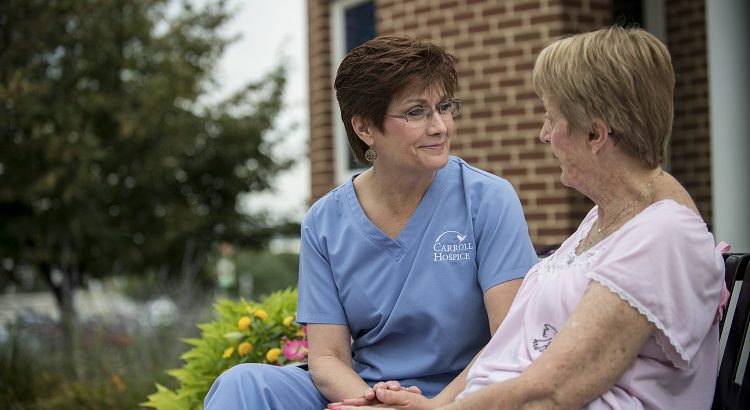November is National Hospice & Palliative Care Month. Regina Bodnar, executive director of Carroll Hospice, answers some frequently asked questions about hospice care.
How does a family know when a loved one is ready for hospice care?
This is perhaps one of the most difficult questions to answer. Some illnesses progress slowly, while others behave very differently. Some clues that might suggest a loved one is eligible for hospice care are recent hospitalizations or frequent visits to the doctor, a change in the ability to complete daily living tasks or a decrease in appetite. Symptoms such as pain, nausea or shortness of breath in the seriously ill or frail elderly should prompt a referral for evaluation by the hospice team.

How soon could hospice care start when a person is diagnosed with a life-limiting illness?
An individual is eligible for hospice care when his or her physician certifies that there is a diagnosis present that he or she believes will contribute to the patient’s death within six months. This life-limiting prognosis is based solely on the patient’s clinical condition. Many patients receive hospice care for a short few days or weeks—despite being entitled to the comprehensive care months earlier. If you suspect a loved one would benefit from hospice care and support, you are encouraged to request an evaluation. Admittedly, there are many who live with a serious illness each day who do not qualify for hospice care but may certainly benefit from the support of palliative care professionals.
Where does the care occur?
The overwhelming majority of care is provided in the patient’s choice of residence. This may be a private home, a nursing facility or an assisted living community. Hospice professionals and volunteers excel at care coordination and welcome the opportunity to partner with other providers to ensure comprehensive care tailored to meet the individual needs of patients and those who love them.
A small percentage of care is provided in our inpatient facility, Dove House. This care setting is reserved primarily for those individuals who are experiencing symptoms related to their illness and cannot be cared for in less specialized settings.
Who provides the care?
Hospice care is provided by an interdisciplinary team of professionals and volunteers who bring services to the patient and family. Physicians, registered nurses, social workers, hospice aides, chaplains and bereavement professionals work collaboratively to meet the needs and respect the preferences of the patient and family. Hospice professionals are supported by a group of volunteers who do those things that may not require a professional touch. How often a team member may visit the patient in his or her choice of residence is based on clinical findings as well as the preferences of the patient and family.
To learn more about Carroll Hospice, please call 410-871-8000. For more information about Carroll Hospital’s palliative care program, please call 410-871-7000.
